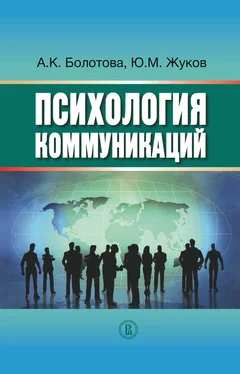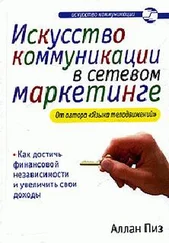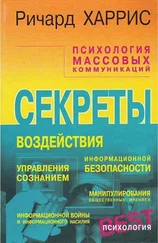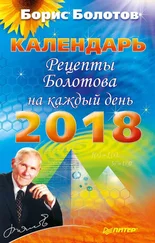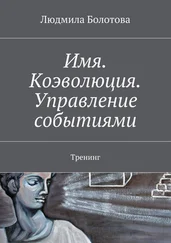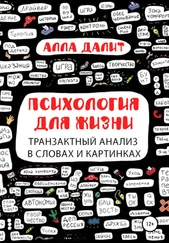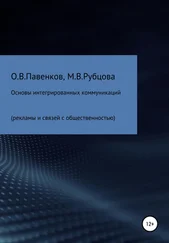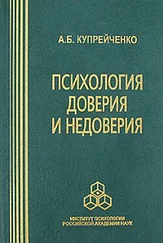Folkman S., Lazarus R. S. Coping as a mediator of emotion // Journal of Personal and Social Psychology. 1998. Vol. 54.
Ford J. K., Weissbein D. A. Transfer of training: An updated review and analysis // Performance Improvement Quarterly. 1997. Vol. 10. No. 2.
Forsyth D. R. Group Dynamics. Belmont: Wadsworth, Cengage Learning, 2010.
Fraher A. L. System psychodynamics: The formative years of an interdisciplinary fi eld at the Tavistock Institute // History of Psychology. 2004. Vol. 7. No. 1.
Frish M. Social skills and stress management training to enhance patients interpersonal competencies // Psychotherapy: Theory, Research and Practice. 1982. Vol. 19. No. 3.
Fromm E. Worte wie Wege. Freiburg: Herder, 1992.
Fry L., Kidron A., Schriesheim C. The ef ectiveness of experiential methods in training and education: A review // Business Games and Experiential Learning in Action. 1975. Vol. 2.
Frydenberg E. Coping Competencies // Theory info Practice. 2004. Vol. 43. No. 1.
Garfinkel K. J. Studies in Ethnomethodology. Englewood Clif s, NJ: Prentice Hall, 1967.
Gibb J. R. The message from research // The Annual Handbook for Group Facilitators. San Diego, CA: University Associates Publishers, 1974.
Gibbons-Wood D., Lange T. Developing core skills: Lessons from Germany and Sweden // Education + Training. 2000. Vol. 42. No. 1.
Gilbert S . The communication of self-disclosure // Human Communication Research. 1975. Vol. 1.
Gof man E. Frame analysis. Cambridge, Mass: Harvard University Press, 1974.
Gof man E. Interaktion und Geschlecht. Frankfurt a/M.; N.Y.: Campus, 1994.
Gof man E. Presentation of Self in Everyday Life. N.Y.: Doubleday Anchor, 1959.
Gof man E. Relations in Public. Microstudies of the Public Order. L.: Lane; Penguin Press, 1971.
Gordon T. Teacher Ef ectiveness Training. N.Y.: Peter Wyden, 1974.
Gouldner A. The norm of resiprociti // Journal of Personal and Social Psychology. 1963. Vol. 25.
Gouran D. S., Hirokawa R. Y. Functional theory and communication in decision-making and problem-solving group: An expanded view // Communication and group decision making / R. Y. Hirokawa, M. S. Poole (eds). Thousand Oaks, CA: Sage. 1996.
Greenan K., Humphreys P., McIlveen H. Developing transferable personal skills // Education + Training. 1997. Vol. 39. No. 2.
Habermas J. The Theory of Communicative Action. Cambridge: Polity, 1984.
Habermas J. The Theory of Communicative Action. Vol. 2. Cambridge: Polity, 1987.
Habermas J. Toward a theory of communicative competence // Recent Sociology. N.Y.: Macmillan, 1970.
Harre R. The ethogenic approach: Theory and practice // Advances in Experimental Social Psychology. 1977. Vol. 10.
Harre R., Clark D., DeCarlo N. Motives and Mechanisms: An Introduction to the Psychology of Action. L.; N.Y: Methuen, 1985.
Hassel T., Joyce J. Communication apprehension in UK and Spanish students // Education + Training. 2000. Vol. 42. No. 2.
Hastie R., Kameda T . The robust beauty of majority rules in group decision // Psychological Review. 2005. Vol. 112. No. 2.
Hattie J., Timperley H. The power of feedback // Review of Educational Research. 2007. Vol. 77. No. 1.
Heider F . The Psychology of Interpersonal Relations. N.Y.: Wiley, 1958.
Heim E. Coping and psychosocial adaptation // Journal of Mental Health Counseling. 1988. Vol. 10.
Henningsen D. D., Henningsen M. L.M . Do groups know what they don’t know? Dealing with missing information in decision-making groups // Communication Research. 2007. Vol. 34. No. 5.
Heun L. R., Heun R. E . Developing Skills for Human Interactions. Columbus, 1978.
Highhouse S. A history of the T-group and its early applications in management development // Group Dynamics. Theory Research and Practice. 2002. Vol. 6. № 4.
Hirokawa R. Y. A comparative analysis of communication patterns within ef ective and inef ective decision-making group // Communication Monographs. 1980. Vol. 47. No. 4.
Hollander E. P. Leadership Dynamics: A Practical Guide to Ef ective Relationships. N.Y.: Free Press, 1978.
Hollander E. P. Women and leadership // Small Groups and Social Interaction. 1983. Vol. 1.
Hollingshead A. B., Wittenbaum G. M., Paulus P. B. et al. A look at groups from the functional perspective // Theories of small groups: Interdisciplinary perspectives / M. S. Poole, A. B. Hollingshead (eds). Thousand Oaks, CA: Sage, 2005.
Horwitz S. K., Horwitz I. B. The ef ects of team diversity on team outcomes: A meta-analytic review of team demography // Journal of Management. 2007. Vol. 33. No. 6.
Humphreys P., Greenan K., McIlveen H. Developing work-based transferable skills in a university environment // Journal of European Industrial Training. 1997. Vol. 21. No. 2.
Hunter D., Thorpe S. Facilitator Values and Ethics // The IAF Handbook of Group Facilitation / S. Schuman (ed.). San Francisco: Jossey-Bass, 2005.
Hyland T. Meta-competence, metaphysics and vocational expertise // Competence and Assessment. 1992. No. 20.
Hymes D. On communicative competence // Sociolinguistics: Selected Readings. Harmondsworth: Penguin, 1972. IRS Managing Confl ict in Workplace / H. Falconer (ed.). L.: Elsevier, 2004. Р. 167.
Jacobs R. W. Real Time Strategic Change. San Francisco: Berrett-Koehler Publishers, Inc., 1997.
James C., RofeI. The evaluation of goal and goal-free training innovation // Journal of European Industrial Training. 2000. Vol. 24. No. 1.
Janis I. L. Groupthink: Psychological Studies of Policy Decisions and Fiascos. Boston: Houghton Mif in, 1982.
Jehn K. A., Shah P. P. Interpersonal relationships and task performance: An examination of mediating processes in friendship and acquaintance groups // Journal of Personality and Social Psychology. 1997. Vol. 72. No. 4.
Jenkins J. C. Operational Dimensions of the Profession of Facilitation // The IAF Handbook of Group Facilitation / S. Schuman (ed.). San Francisco: Jossey-Bass, 2005.
Jones E. E. Toward a general theory of strategic self-presentation // Psychological Perspectives on the Self. Vol. 1 / J. M. Suls (ed.). Hillsdale, N.J.: Lawrence Erlbaum Associates, 1982.
Jones E. E., Pittman T. S. Toward a general theory of strategic self-presentation // Psychological Perspectives on the Self. Vol. 1 / J. Suls (ed.). Hillsdale, NJ: Erlbaum, 1982.
Jourard S. M . The Transparent Self. Princeton, NJ: Van Nostrand, 1971.
Jourard S. M. The Transparent Self: Self-Disclosure and Well-Being. Princeton, NJ: Van Nostrand, 1964.
Justice T., Jamieson D. W. The Facilitator’s Fieldbook. N.Y.: HRD Press, 2006.
Kameda T., Stasson M. F., Davis J. H., Parks C. D., Zimmerman S. K. Social dilemmas, subgroups, and motivation loss in task-oriented groups: In search of an “optimal” team size in division of work // Social Psychology Quartely. 1992. Vol. 55. No. 1.
Karau S. J., Williams K. D. Social loafing: A meta-analytic review and theoretical integration // Journal of Personality and Social Psychology. 1993. Vol. 65. No. 4.
Katz R., Tushman M. Communication patterns, project performance, and task characteristics: An empirical evaluation and integration in an R&D setting // Organization Behavior and Group Performance. 1979. Vol. 23. No. 1.
Keith N., Frese M. Efectiveness of error management training: A meta-analysis // Journal of Applied Psychology. 2008. Vol. 93. No. 1.
Читать дальше
Конец ознакомительного отрывка
Купить книгу
